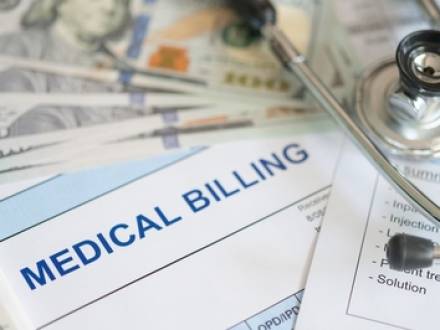Medical Debt and Retirement: A Senior’s Guide to Bankruptcy
 Between 1991 and 2016, bankruptcy filings among individuals aged 65 to 74 increased by 204 percent. This huge increase is largely due to the rising costs associated with medical expenses. The cost of healthcare, including insurance premiums, deductibles, and out-of-pocket expenses, disproportionately impacts seniors who may have chronic illnesses, insurance coverage gaps, and fixed incomes.
Between 1991 and 2016, bankruptcy filings among individuals aged 65 to 74 increased by 204 percent. This huge increase is largely due to the rising costs associated with medical expenses. The cost of healthcare, including insurance premiums, deductibles, and out-of-pocket expenses, disproportionately impacts seniors who may have chronic illnesses, insurance coverage gaps, and fixed incomes.
Many Texas seniors are finding that their medical bills are turning their retirement years into a financial nightmare. Social Security payments are unlikely to keep up with medical costs, and while bankruptcy is a choice few seniors want to consider, it can help you protect your assets while regaining financial stability in your golden years. Consulting with a knowledgeable Dallas, TX bankruptcy lawyer can help answer your questions and determine whether bankruptcy is the best option for you.
Which Bankruptcy Option is Typically Better for Seniors With Medical Debt?
If you have assets in retirement accounts that require protection, your debt consists mostly of medical and credit card debt, and you want to claim the maximum homestead amount, then filing for Chapter 7 bankruptcy is likely your best choice, as long as you qualify. You will need to take the means test to determine whether you can file Chapter 7.
The means test compares your average monthly income over the six months prior to your filing for Chapter 7 to the median income for your household size. If your income is below the median, you pass the means test. As of April 1, 2025, the median annual income for a single person in Texas was $63,448, or approximately $4,620 per month. If your income is above the median, then your disposable income will be considered.
Disposable income is calculated by subtracting allowable expenses from regular income. Allowable expenses include housing, transportation, medical costs, and other necessary expenses. If you have little disposable income left after expenses, you may still qualify for Chapter 7. Chapter 13 is a reorganization of your debts and a three to five-year repayment plan that aims to pay all or most of your creditors in full. Since Chapter 13 requires a steady income, it may not work as well for seniors.
Are Your Retirement Income and Social Security Benefits Protected During Bankruptcy?
Social Security benefits are protected as long as they are kept in a dedicated bank account that is only for these benefits. Most retirement accounts are also protected during Chapter 7 bankruptcy, especially 401(k)s, 403(b)s, pensions, and IRAs (up to certain limits). As long as you do not withdraw any funds from these accounts, they are exempt and will not be used to pay creditors.
Will You Be Able to Keep Your Home if You File for Chapter 7 Bankruptcy?
Texas has an unlimited homestead exemption that covers your primary residence along with 10 acres for urban properties, and up to 100 acres for rural properties. Most states – and the federal government – are not nearly as generous with the homestead exemption as Texas. Texas allows bankruptcy filers to choose either federal exemptions or Texas exemptions. However, if you have a home you want to protect, Texas exemptions will likely be the best option.
Contact a Parker County, TX Bankruptcy Lawyer
Medical debt should not define your "golden" years. Bankruptcy can be a powerful tool, used to "reset" financially while protecting your assets and stopping creditor harassment. Having a strong legal advocate can make a significant difference.
It can be beneficial to speak to an experienced Fort Worth, TX bankruptcy attorney from Acker Warren P.C.. When you choose our firm, you will always speak to an attorney as opposed to a paralegal. We offer a quick turnaround and can even work virtually if it is difficult for you to come to us.









